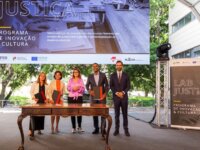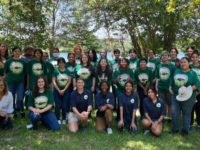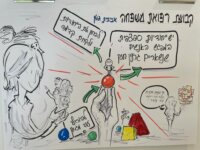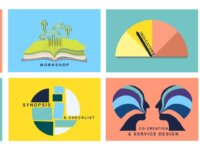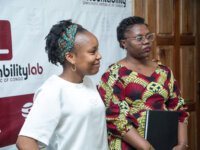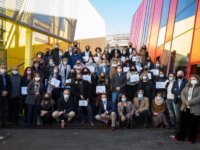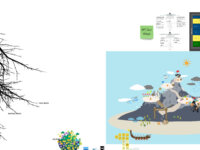LAB Justice is the first executive education program, tailor-made for the Justice sector. With a customized learning journey, it was designed to help people working for Justice bodies address the challenges faced to deliver more efficient and people-centred services. Focused on three main areas – strategic management, digital transition and leadership in a context of change –, it aims to ensure the necessary skills to implement reform measures, namely those under the Recovery and Resilience…
Innovation Tag: Process Facilitation and Co-design
Case Study
Dialogue between the city & its people: guide to civic participation in public space projects
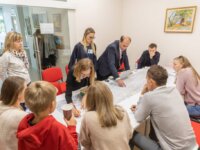
By involving the public in the design of public spaces (parks, plazas, streets etc.) municipalities can create spaces that better suit society's interests. According to the data, 58 out of 60 municipalities in Lithuania recognize the benefits of public participation, but 50 % of them say they don't have the knowledge for it. The guide "Dialogue between the city & its people" is a step-by-step textbook for municipalities that helps execute the participation process from start to finish.
Public healthcare in Serbia is transformed through innovative use of mixed reality technology powered by Artificial Intelligence, that increased efficiency and quality of healthcare, minimized risks and efforts, and optimizes procedures. Through remote collaboration, doctors have the same insight into patient’s condition without the need of physical presence, enabling joint real time inputs and medical interventions with experts from anywhere, as well as remote education for medical students.
The Austin Civilian Conservation Corps (ACCC) began as a pandemic response program to help residents earn income and access green careers, and has evolved into a leading model for equitable, climate-focused workforce development. The ACCC, a collaboration with 10+ City departments and multiple community partners, has provided over 125 living-wage opportunities with supportive services, training, and career pathways for Austin’s underserved residents, and is actively shaping the green economy.
Case Study
Challenge Tenders – An innovative method of implementing digital solutions to solve urging…
Challenge tenders are a new model designed to solve urging needs of the health system which usually aren't attractive enough for the start-up industry to engage in, such as fall prevention among elders, improvement of geriatric care in long term facilities and others. In order to attract digital based solutions to enter the health system, we initiated an innovative method of intervention which allows quick testing of technologies in health organization with MOH support for fast proven outcomes.
Covid-19 outbreak and the new reality led to increase in the demands for remote health services. The health system faced with an adaptive challenge of redesigning remote health services in no time. The Digital Health Department at the Israeli Ministry of Health founded a cross-organizational and cross-professional health practitioners’ community to advance wide scale, informed and safe telemedicine practices through the creation of a learning environment, knowledge sharing, and joint action.
In the VUCA (volatility, uncertainty, complexity and ambiguity) world, the tasks of the government are interconnected and require cross-border collaboration and dialogue within ecosystems. However, one of the key challenges is the lack of knowledge and easy-to-deploy tools. As partners of Work2.0Lab (Työ2.0Lab), we co-created and implemented Ecosystem School 1.0. Its purpose was to develop ecosystem thinking, capabilities and tools to support phenomenon-oriented work within ecosystems.
The Accountability Incubator is a creative peer learning program for young civic activists and change-makers who want to fight corruption and build accountability. It was developed to provide long-term support, networks and skills to people who are often overlooked by or left out of traditional civil society programs. It is innovative in that it uses creative tools, a long-term approach and the very latest thinking to shape governance globally.
Digitalization is key to the present and future of local commerce in any city. For digitalization to be effective, it must be personalized, thinking about the uniqueness of commerce, connected with the local and with the world to achieve greater competitiveness. Like the "Sherpas" in the mountains, the "Digital Sherpas" in Las Rozas guide businesses in digitalization and the multichannel and gamified platform "Las Rozas Fans" helps them connect to the world in an attractive and easy way for…
Governments provide a variety of financial help to people in need, with the eligibility/entitlement rules largely defined in legislation. But understanding those rules is incredibly hard, especially when under duress. This project is a community and social sector collaboration on a public, anonymous and interactive service that helps people know their legal rights to services & to an explanation from government, built upon a world first community reference implementation of legislation as code.

